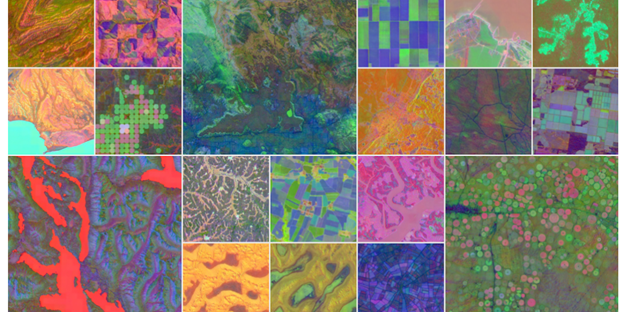
Image by Author | Canva
Continuous Integration and Continuous Delivery (CI/CD) are essential for modern software and machine learning workflows, helping teams deliver high-quality products faster and more reliably. CI/CD automates repetitive tasks, speeds up feedback, ensures quality with automated testing, improves collaboration, and scales to any project size.
In this guide, we will highlight the top 7 CI/CD tools for 2025, perfect for startups seeking rapid releases or enterprises needing robust automation.
# Top CI/CD Tools
// 1. GitHub Actions: Native CI/CD for GitHub Repositories
GitHub Actions is a feature-rich CI/CD platform built directly into GitHub. It is a popular tool that allows developers to automate, customize, and execute software development workflows directly from their GitHub repositories. I use it frequently for my machine learning workflow, including training, evaluation, and deployment of machine learning services. It is easy to learn and comes with a vast collection of community-based workflow extensions.
Learn more: https://github.com/features/actions
// 2. GitLab CI/CD: Integrated DevOps Automation
GitLab CI/CD is similar to GitHub Actions but offers additional features and security solutions. It provides robust continuous integration, deployment, and delivery capabilities. It is ideal for teams seeking an all-in-one DevOps solution with strong collaboration features and detailed feedback on pipeline maturity.
Learn more: https://about.gitlab.com/stages-devops-lifecycle/continuous-integration/
// 3. CircleCI: Fast, Scalable Cloud-Native Pipelines
CircleCI is known for its speed, scalability, and flexibility. It supports both cloud and on-premises deployments, integrates with popular version control systems, and offers advanced features like matrix builds, SSH debugging, and reusable configuration packages called Orbs. Many enterprise customers prefer CircleCI over GitHub Actions.
Learn more: https://circleci.com/
// 4. Jenkins: The Open-Source Automation Powerhouse
Jenkins is one of the oldest and most powerful open-source CI/CD tools. I have used it on Windows, and it is fast and highly extensible, with a vast plugin ecosystem.
Jenkins supports building, testing, and deploying across virtually any environment. Its pipeline-as-code approach and distributed build capabilities make it suitable for complex, customizable workflows. If you are building and deploying applications in a local environment, Jenkins is an excellent automation tool.
Learn more: https://www.jenkins.io/
// 5. Travis CI: Cloud-Based Simplicity for Open Source Projects
Travis CI is a cloud-based CI/CD service popular among open-source projects, allowing you to easily obtain open-source build credits by filling out a form. It automatically detects new commits in GitHub repositories, builds the project, and runs tests. Travis CI supports a wide range of programming languages and deployment targets, making it a straightforward choice for teams looking for easy setup and integration with GitHub.
Learn more: https://travis-ci.com/
// 6. TeamCity: Robust Build Management by JetBrains
If you are already using the JetBrains ecosystem, why not take advantage of their automation tool, TeamCity? It offers a comprehensive platform for reliable and efficient software builds, tests, and deployments. TeamCity features sophisticated build pipelines, parallel and dependent builds, and detailed feedback on code quality.
Learn more: https://www.jetbrains.com/teamcity/
// 7. Azure Pipelines: Enterprise-Grade CI/CD from Microsoft
For Microsoft cloud users, Azure Pipelines delivers powerful CI/CD automation for any language, platform, or cloud. It supports YAML-based pipeline definitions, parallel jobs, and deep integration with Azure services. Azure Pipelines is ideal for organizations already invested in the Microsoft ecosystem.
Learn more: https://azure.microsoft.com/en-us/services/devops/pipelines/
Conclusion
CI/CD tools are essential for automating the software development lifecycle, ensuring that code is thoroughly tested, built, and deployed efficiently before reaching production. By streamlining repetitive tasks and reducing manual intervention, these tools help teams scale their projects, improve code quality, and accelerate delivery.
In this article, we explored some of the top CI/CD tools that form the backbone of modern software development. Each tool offers unique features and strengths, making it important to choose the one that best fits your team’s specific needs and workflow.
Abid Ali Awan (@1abidaliawan) is a certified data scientist professional who loves building machine learning models. Currently, he is focusing on content creation and writing technical blogs on machine learning and data science technologies. Abid holds a Master’s degree in technology management and a bachelor’s degree in telecommunication engineering. His vision is to build an AI product using a graph neural network for students struggling with mental illness.

